The scenic Southern Cross-Island Highway (
Since the highway zigzags through a wide area of the Yushan National Park (
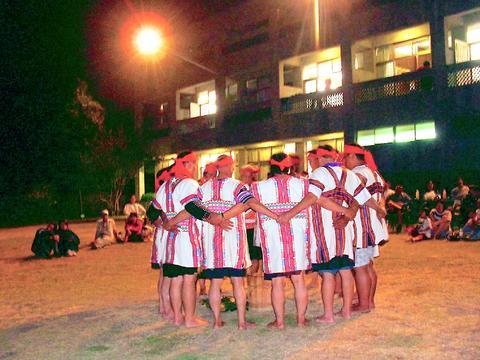
PHOTO: DEREK LEE, TAIPEI TIMES
Highway No. 20 was completed in 1973 but was opened to the public in 1993, because of the dangers inherent in its treacherous terrain and the frequent landslides.
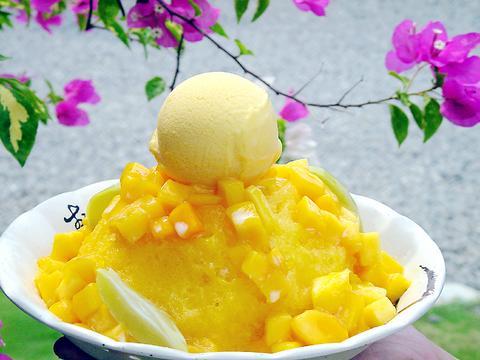
The highway rises from a few hundred meters above sea-level at Tainan to 2,731m at Yakou (土
More importantly, this spectacular route, stretching 209km from Tainan to Taitung, passes by the southwest entrance of the Yushan National Park, at the route's 109.5km mark and extends to the 147km mark, at the west end of Yakou Tunnel. The terrain of the park rises from Lakulaku Stream Valley (
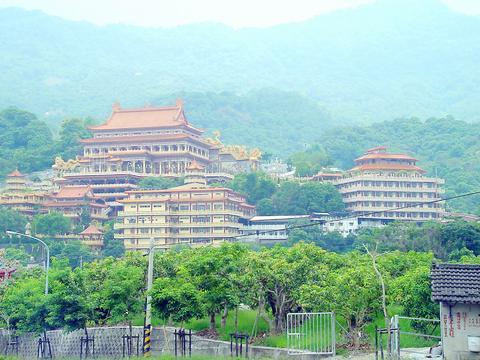
Such a topographically varied territory with a mild temperature gives birth to dramatic natural scenery: steep river valleys, breathtaking gorges and giant Taiwan red cypress or Morrison spruce forests.
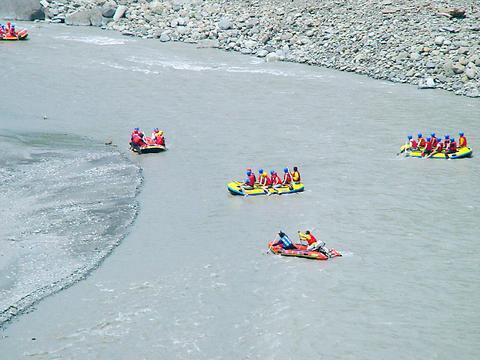
The area's temperature is generally cool, though there is great variation between day and night and between seasons. Temperatures go as high as 30?C in the summer and drop below-zero in the winter. Best of all, snow is rarely seen on the route, mainly due to a lack of moisture in the air.
From January to March, as soon as spring touches the ground, the area is decorated with numerous flowers such as Taiwan cherries, azaleas and plum blossoms. The Taiwan lily, Formosan raspberry and glandular rosa (
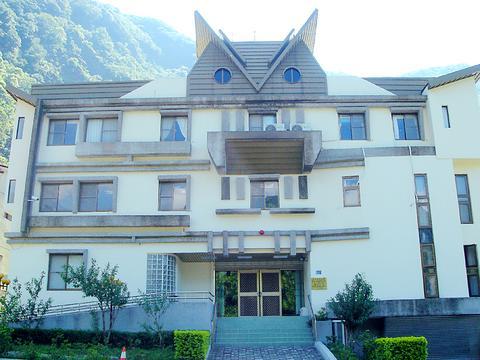
Since different animals live in different floral zones, the rich variety of vegetation in Yushan National Park breeds a wide range of fauna, such as Formosan macaque, wild boar, black bear and numerous bird species, both endemic and migratory.
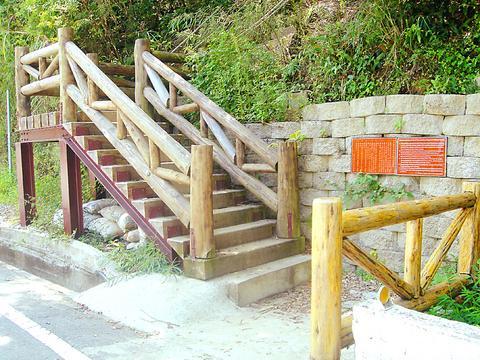
Across these vast mountains and green valleys, a ferociously brave tribe, whose members proclaim themselves "the sons of Yushan," has resided for many centuries.
The present-day Bunun tribe (
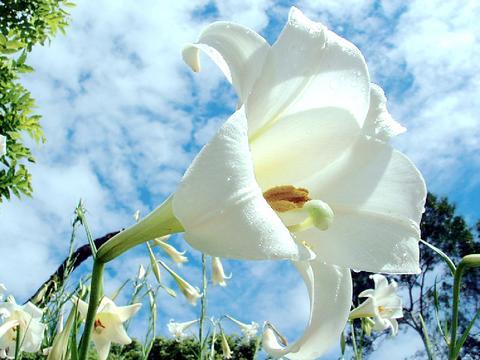
The Bunun are an internationally renowned group of people who are blessed with an amazing talent of choral singing. Every year, between the months of April and July, the Bunun tribesmen hold two traditional festivals.
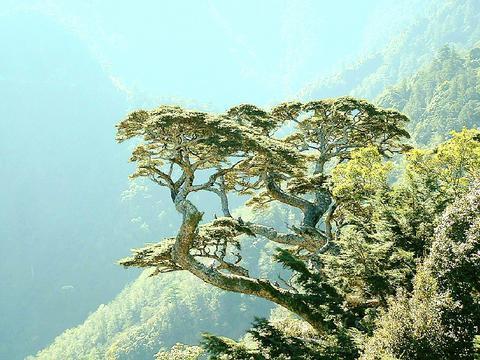
PHOTO COURTESY OF CHEN JUNG-LUNG
At the height of each ceremony, a team of eight or more adult men (no women are allowed) form a small, close circle and sing praise songs such as Pasi But But (Praying for a Rich Millet Harvest, 祈禱小米豐收歌) or Manandi, (Chief Ritual Song, 首祭之歌) to worship their gods in eight vocal parts (a choir normally sings four vocal parts in the West).
According to Wu Rung-shun (
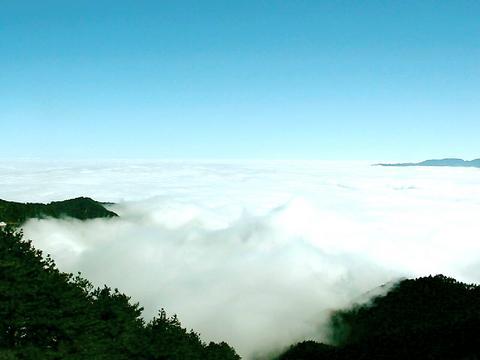
The Bunun tribe's natural singing talent has been passed on to descendents such as Biung (
Due to an absence of snow and severe weather, the area is often crowded in winterwith people who visit to climb nearby mountains, hike trails or ride cross-country bikes.
The "three-stars (mountains) of the Southern Crossing" (
Hikers who have planned well may make their trip to and from the mountains in a day if they start their journey from Yakou. A nearby lodge (土
On the road: Provincial Highway No. 20
1. Yujing (
2. Yushan Baoguang Sacred Temple (
3. Baolai (寶來). Excited about riding rapids? White water rafting is available in this tiny mountain village, a 21km drive from Jiasian, from May to October. It's generally a 13km, eight to 10-person raft ride, on the Launong Stream (荖濃溪) and takes about two hours to complete. The cost is around NT$700 to NT$800 per person, above the age of 12. After all this excitement and long-distance driving, you might be ready to take a dip and relax in one of the village's hot springs. This amazing village is home to many hot spring hotels. Fun Chen Sawuna Resort Hotel (芳晨溫泉渡假村), located at the street end of Boalai village, is an ideal place to spend a night.
4. Meishan Youth Activity Center (梅山青年活動中心) is another 30km eastward from Baolai and is a modern building constructed by the Chinese Youth Corps, just like Yakou Lodge. It is a quiet, exclusive lodge for those who choose to be close to nature. Both the Meishan Visitor Center and Bunun Culture Exhibition Center are nearby. The Meishan Police Squad office next to them by the roadside looks like an owl, an auspicious animal in the Bunun tribe's customs. It has won a lot of praise from visitors for showing the Bunun people's sense of humor.
5. Jhongjhihguan (
6. Tianchih is an important landmark on the highway and is named after the lake in the high mountains. The lake, a few kilometers away from Jhongjhihguan, is 2,200m above sea level.
7. Kuaiku (
8. Daguanshan Tunnel (
For Sinying (
From the Tainan area, take National Highway No. 8 to Sinhua (新化) and connect to Provincial Highway No. 20 at Tsochen (左鎮).
From the Kaohsiung area, take National Highway No. 10 to Cishan (

In Taiwan there are two economies: the shiny high tech export economy epitomized by Taiwan Semiconductor Manufacturing Co (TSMC, 台積電) and its outsized effect on global supply chains, and the domestic economy, driven by construction and powered by flows of gravel, sand and government contracts. The latter supports the former: we can have an economy without TSMC, but we can’t have one without construction. The labor shortage has heavily impacted public construction in Taiwan. For example, the first phase of the MRT Wanda Line in Taipei, originally slated for next year, has been pushed back to 2027. The government

July 22 to July 28 The Love River’s (愛河) four-decade run as the host of Kaohsiung’s annual dragon boat races came to an abrupt end in 1971 — the once pristine waterway had become too polluted. The 1970 event was infamous for the putrid stench permeating the air, exacerbated by contestants splashing water and sludge onto the shore and even the onlookers. The relocation of the festivities officially marked the “death” of the river, whose condition had rapidly deteriorated during the previous decade. The myriad factories upstream were only partly to blame; as Kaohsiung’s population boomed in the 1960s, all household

Allegations of corruption against three heavyweight politicians from the three major parties are big in the news now. On Wednesday, prosecutors indicted Hsinchu County Commissioner Yang Wen-ke (楊文科) of the Chinese Nationalist Party (KMT), a judgment is expected this week in the case involving Hsinchu Mayor Ann Kao (高虹安) of the Taiwan People’s Party (TPP) and former deputy premier and Taoyuan Mayor Cheng Wen-tsan (鄭文燦) of the Democratic Progressive Party (DPP) is being held incommunicado in prison. Unlike the other two cases, Cheng’s case has generated considerable speculation, rumors, suspicions and conspiracy theories from both the pan-blue and pan-green camps.

Stepping inside Waley Art (水谷藝術) in Taipei’s historic Wanhua District (萬華區) one leaves the motorcycle growl and air-conditioner purr of the street and enters a very different sonic realm. Speakers hiss, machines whir and objects chime from all five floors of the shophouse-turned- contemporary art gallery (including the basement). “It’s a bit of a metaphor, the stacking of gallery floors is like the layering of sounds,” observes Australian conceptual artist Samuel Beilby, whose audio installation HZ & Machinic Paragenesis occupies the ground floor of the gallery space. He’s not wrong. Put ‘em in a Box (我們把它都裝在一個盒子裡), which runs until Aug. 18, invites